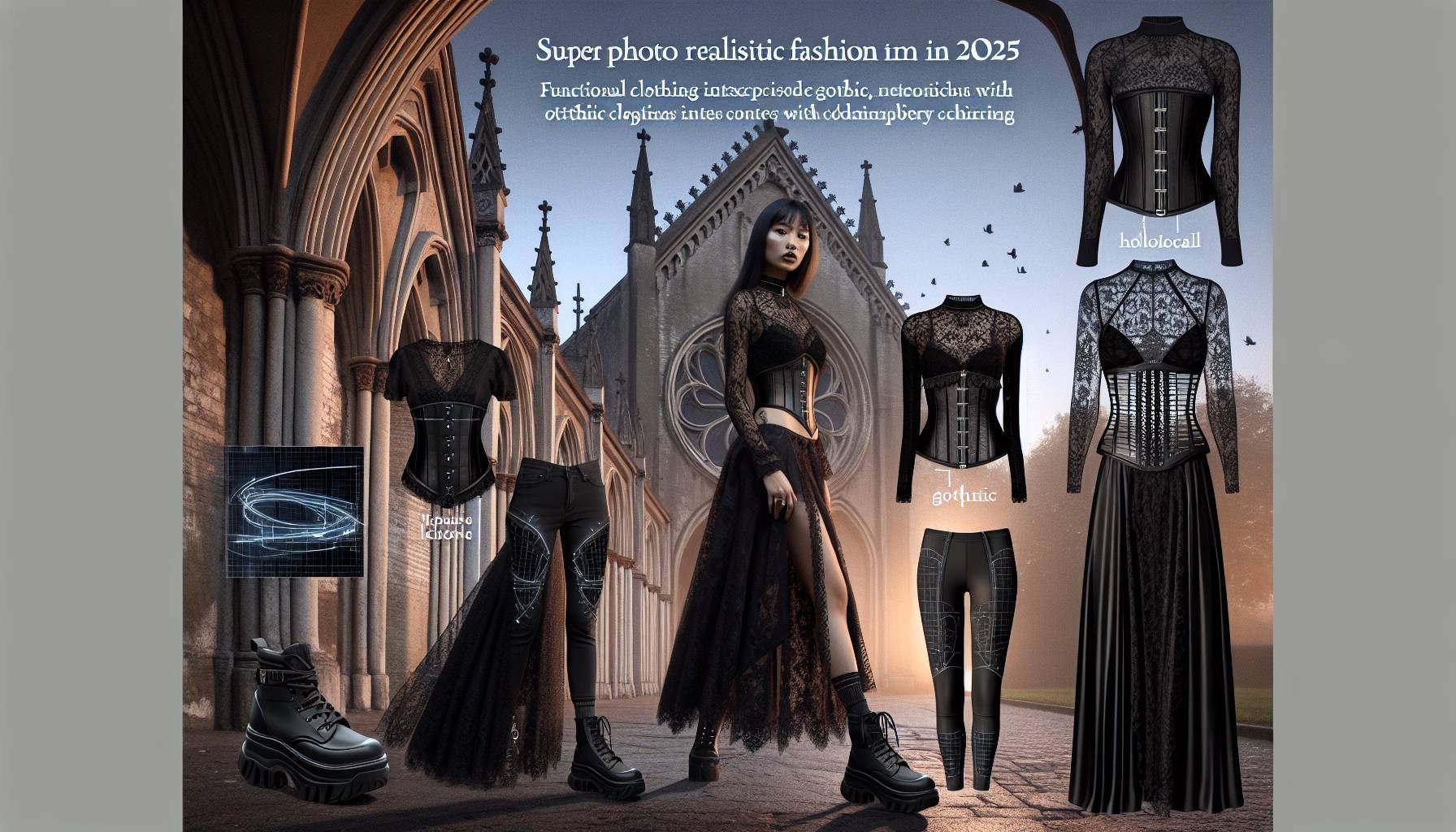venture investment trends in AI fashion startups
In recent years, the fashion sector has witnessed a notable trend in venture investment, particularly in AI startups. Despite fluctuations in the broader venture capital landscape, investment in AI-driven fashion startups has shown resilience. This trend is largely attributed to the growing recognition of AI’s potential to revolutionize various aspects of the fashion industry, from design and production to marketing and sales.
Investors are increasingly drawn to AI startups that offer innovative solutions to longstanding challenges in the fashion sector. These startups are leveraging AI technologies to enhance supply chain efficiency, improve customer personalization, and predict fashion trends with greater accuracy. As a result, they are attracting significant attention and funding from venture capitalists who are eager to capitalize on these advancements.
Moreover, the integration of AI in fashion is not just limited to operational improvements. It is also driving new business models and creating opportunities for startups to differentiate themselves in a competitive market. This has led to a steady flow of investment into AI fashion startups, as investors seek to support companies that are at the forefront of technological innovation in the industry.
The trend of venture investment in AI fashion startups reflects a broader shift towards embracing technology as a key driver of growth and transformation in the fashion sector. As AI continues to evolve, it is expected that investment in this area will remain robust, further solidifying the role of AI in shaping the future of fashion.
impact of pandemic on venture capital funding
The pandemic had a profound impact on venture capital funding, causing a significant shift in investment patterns across various sectors. During the height of the pandemic, there was an initial surge in venture capital as investors sought to capitalize on emerging opportunities in technology and digital transformation. However, as the pandemic progressed, overall venture capital funding began to decline from the unprecedented levels seen during the early stages.
This decline can be attributed to several factors, including economic uncertainty, market volatility, and a cautious approach adopted by investors. Many venture capitalists became more selective, prioritizing investments in sectors that demonstrated resilience and potential for growth despite the challenging economic environment. As a result, traditional industries and startups that were heavily reliant on physical operations faced difficulties in securing funding.
Interestingly, while overall venture capital funding experienced a downturn, AI startups within the fashion sector managed to maintain or even increase their investment levels. This anomaly highlights the unique position of AI in fashion, where the demand for digital solutions and innovative technologies remained strong. The pandemic accelerated the adoption of AI-driven tools in fashion, as brands and retailers sought to enhance their online presence and optimize their operations in response to changing consumer behaviors.
Furthermore, the pandemic underscored the importance of agility and adaptability in business operations. AI startups in the fashion industry were well-positioned to offer solutions that addressed these needs, such as virtual try-ons, automated inventory management, and data-driven marketing strategies. These capabilities not only helped fashion companies navigate the challenges posed by the pandemic but also positioned AI startups as attractive investment opportunities for venture capitalists looking to support resilient and forward-thinking businesses.
future outlook for AI in the fashion industry
As the fashion industry continues to evolve, the future outlook for AI integration appears promising. AI technologies are expected to play a pivotal role in driving innovation and efficiency across various facets of the industry. From enhancing design processes to optimizing supply chains, AI is set to transform how fashion businesses operate and engage with consumers.
One of the key areas where AI is anticipated to make a significant impact is in personalized customer experiences. By leveraging data analytics and machine learning, fashion brands can offer tailored recommendations and create more engaging shopping experiences. This level of personalization not only enhances customer satisfaction but also fosters brand loyalty, which is crucial in a competitive market.
Moreover, AI is poised to revolutionize the way fashion trends are predicted and analyzed. With the ability to process vast amounts of data, AI can identify emerging trends and consumer preferences with greater accuracy and speed. This capability allows fashion companies to stay ahead of the curve and make informed decisions about product development and marketing strategies.
In addition to consumer-facing applications, AI is expected to drive operational efficiencies within the fashion industry. Automation of routine tasks, such as inventory management and quality control, can lead to cost savings and improved productivity. Furthermore, AI-powered tools can assist in sustainable fashion practices by optimizing resource use and reducing waste, aligning with the growing demand for environmentally conscious products.
As AI technology continues to advance, it is likely that new applications and business models will emerge, further integrating AI into the fabric of the fashion industry. This ongoing evolution presents exciting opportunities for startups and established companies alike, as they seek to harness the power of AI to innovate and thrive in a rapidly changing landscape.
trends in AI investment within fashion startups
In recent years, the fashion sector has witnessed a fascinating trend: a steady or even increased flow of venture investment into AI startups. This is particularly intriguing given the broader context of fluctuating venture capital landscapes. AI technologies are revolutionizing the fashion industry, offering innovative solutions that range from personalized shopping experiences to efficient supply chain management.
Investors are keenly aware of the potential AI holds in transforming fashion retail and production processes. Startups leveraging AI for predictive analytics, virtual try-ons, and inventory management are attracting significant attention. These technologies not only enhance customer engagement but also streamline operations, making them highly attractive to investors looking for sustainable growth opportunities.
Moreover, the integration of AI in fashion is not just a trend but a strategic move towards future-proofing businesses. As consumer expectations evolve, the demand for personalized and seamless shopping experiences is on the rise. AI-driven insights allow brands to anticipate trends and consumer preferences, ensuring they stay ahead in a competitive market.
For Australian fashion startups, this trend presents a unique opportunity to tap into global investment streams. By embracing AI, these startups can position themselves as leaders in innovation, appealing to both local and international investors. The focus on AI is not just about keeping up with the times; it’s about setting the pace for the future of fashion.
impact of pandemic on venture capital funding
The pandemic has undeniably reshaped the venture capital landscape, with a noticeable decline in overall funding levels from the highs experienced during the pandemic’s peak. However, this downturn hasn’t deterred investment in AI startups within the fashion sector. While many industries faced financial constraints, the fashion industry saw a unique opportunity to innovate and adapt through AI technologies.
During the pandemic, consumer behavior shifted dramatically, with a surge in online shopping and a demand for more personalized experiences. This shift highlighted the importance of digital transformation, pushing fashion brands to explore AI solutions more aggressively. As a result, venture capitalists recognized the potential for AI to address these new consumer needs, maintaining or even increasing their investment in this niche.
In Australia, the impact was felt as local fashion startups began to pivot towards AI-driven solutions to remain competitive. The focus on AI allowed these startups to not only survive but thrive, as they could offer enhanced digital experiences and operational efficiencies. This adaptability has been crucial in attracting venture capital, as investors are keen to support businesses that demonstrate resilience and innovation in challenging times.
Despite the broader decline in venture capital funding, the commitment to AI in fashion underscores a strategic shift towards long-term growth and sustainability. For Australian fashion entrepreneurs, this period has been a testament to the power of innovation and the critical role of AI in shaping the future of the industry.

